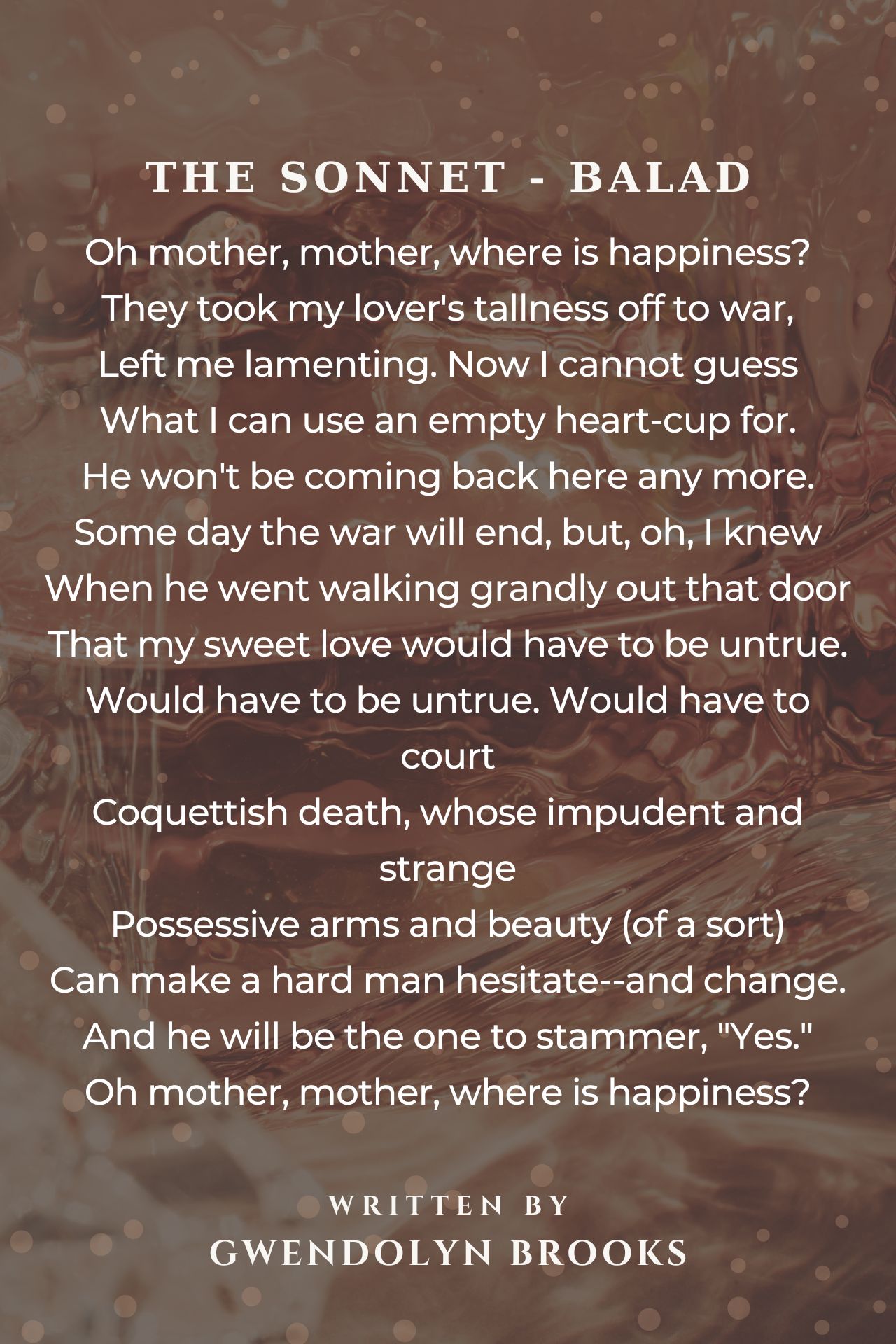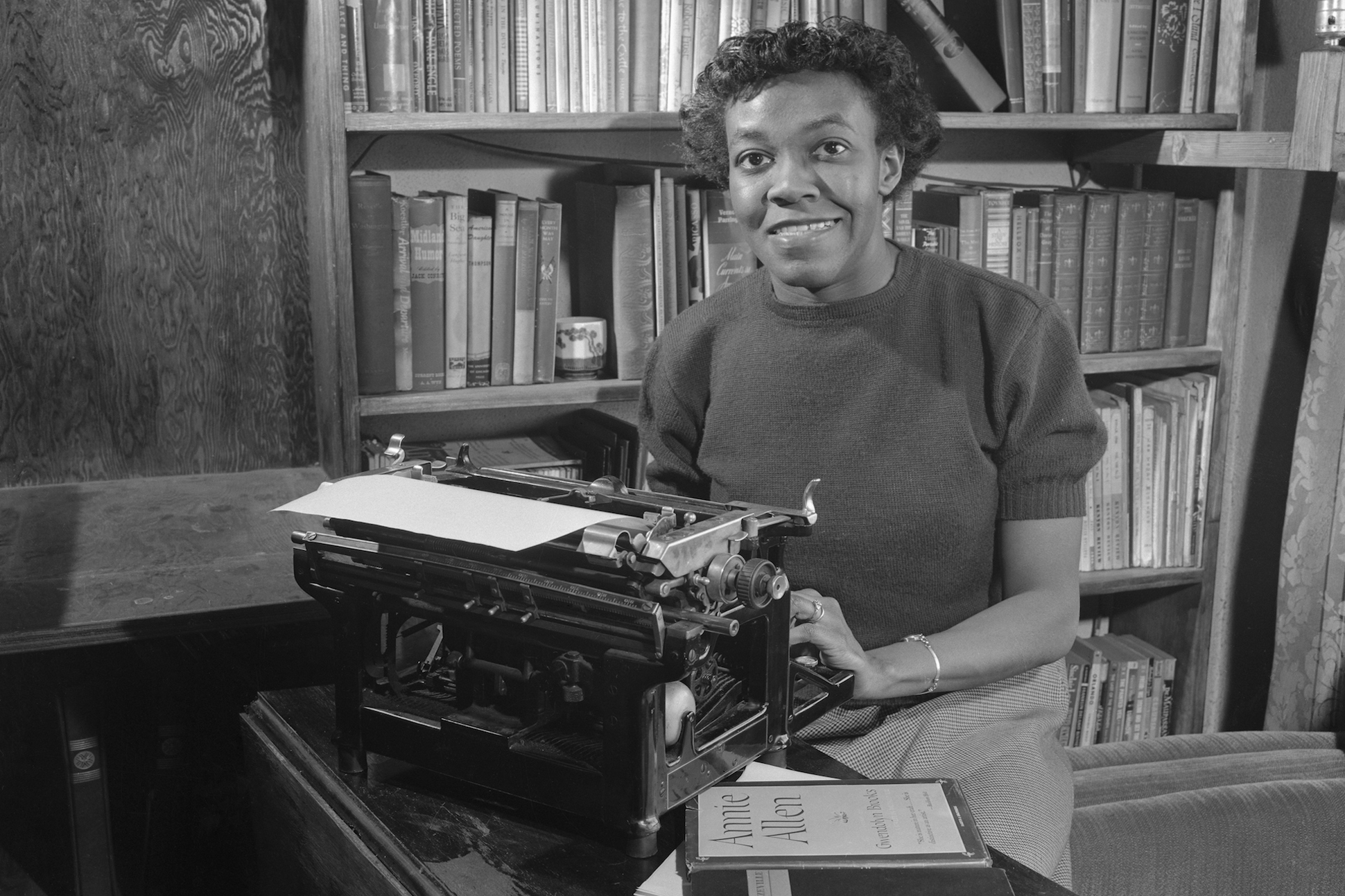The Sonnet-Ballad Poem by Gwendolyn Brooks
The Sonnet-Ballad
Oh mother, mother, where is happiness?
They took my lover's tallness off to war,
Left me lamenting. Now I cannot guess
What I can use an empty heart-cup for.
He won't be coming back here any more.
Some day the war will end, but, oh, I knew
When he went walking grandly out that door
That my sweet love would have to be untrue.
Would have to be untrue. Would have to court
Coquettish death, whose impudent and strange
Possessive arms and beauty (of a sort)
Can make a hard man hesitate- and change.
And he will be the one to stammer, 'Yes.'
Oh mother, mother, where is happiness?

War certainly snatches away happiness to beloved ones in the world! The sorrow of loss of beloved in war too is insurmountable indeed! That the poet says with great force and feeling by this wonderful sonnet kind of ballad! Thanks for sharing here!
CONGRATULATIONS for PH choice AS THE MODERN POEM OF THE DAY, Hurray! Fascinating poem but full of melancholy and best worded. Thank you for sharing this lovely but sad poetry.
A sad view of war from those who remain behind but suffer as well. All told in the true sonnet form.
oh happiness you are flirty mind! where you are in the war! in the lap of mother! lives no one there in true answer..../// beautiful poem
War! ! ! Destruction! ! Lamentation! War will never bring us peace. Thanks for sharing this poem with us.
Dear a lamenting for tall sons, Such such a superior poem ***** thanks muse
gwen has made something fresh with this traditional form. lover's tallness, empty heart-cup, and walking grandly out the door are fresh and vivid images using simple (accessible) language. coquettish death is a bit fancier but is true to the adrenaline-rush that lures many. and to top it all off, this poem while a sonnet has the feel of the blues—something close, i expect, to gwen's roots. -gk
This poem has not been translated into any other language yet.
I would like to translate this poem
This is an excellent poem by Brooks. It is almost a cross between ancient language and modern vernacular. The sonnet flows nicely. Basically, the poem is about a woman who's man went off to war and her heart is breaking. It shows the worries and heartbreak that many feel when a loved one leaves. But Brooks took an interesting twist on the 8th line. Instead of saying something along the lines of 'I fear he will die', she personifies death as a flirtatious woman. She describes death as having 'possessive arms' and also 'beauty'. If the man were in serious pain and about to die, he WOULD welcome death to take him out of his misery. That is why I consider the strongest line 'Can make a hard man hesitate-and change'. This pause between the lines is quite powerful. There have been many incidents where people seem to lose their identities in horrible moments of war. They never come back as the same person. There have been many soldiers who suffer from nightmares and post-traumatic stress disorder. Brooks nicely ends with the last two lines. Excellent sonnet.